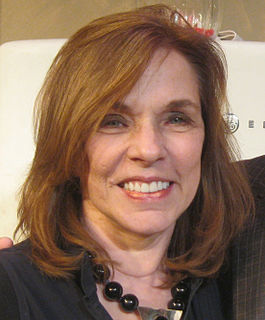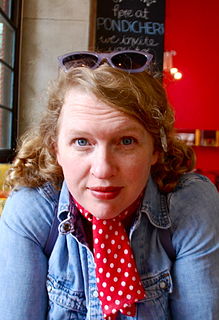A Quote by Kim Brooks
This is what shame does to women: It isolates us and makes us feel our stories aren't really stories at all but idiosyncratic flaws.
Related Quotes
Stories? We all spend our lives telling them, about this, about that, about people … But some? Some stories are so good we wish they’d never end. They’re so gripping that we’ll go without sleep just to see a little bit more. Some stories bring us laughter and sometimes they bring us tears … but isn’t that what a great story does? Makes you feel? Stories that are so powerful … they really are with us forever.
What does it matter, if we tell the same old stories? ...Stories tell us who we are. What we’re capable of. When we go out looking for stories we are, I think, in many ways going in search of ourselves, trying to find understanding of our lives, and the people around us. Stories, and language tell us what’s important.
Feelings and stories of unworthiness and shame are perhaps the most binding element in the trance of fear. When we believe something is wrong with us, we are convinced we are in danger. Our shame fuels ongoing fear, and our fear fuels more shame. The very fact that we feel fear seems to prove that we are broken or incapable. When we are trapped in trance, being fearful and bad seem to define who we are. The anxiety in our body, the stories, the ways we make excuses, withdraw or lash out—these become to us the self that is most real.
Our stories are not meant for everyone. Hearing them is a privilege, and we should always ask ourselves this before we share: "Who has earned the right to hear my story?" If we have one or two people in our lives who can sit with us and hold space for our shame stories, and love us for our strengths and struggles, we are incredibly lucky. If we have a friend, or small group of friends, or family who embraces our imperfections, vulnerabilities, and power, and fills us with a sense of belonging, we are incredibly lucky.
So I found myself telling my own stories. It was strange: as I did it I realised how much we get shaped by our stories. It's like the stories of our lives make us the people we are. If someone had no stories, they wouldn't be human, wouldn't exist. And if my stories had been different I wouldn't be the person I am.
We have to hear the stories of women at all ages of their lives in order to really present a picture of what it felt like to be alive in our time. That's what our job is as writers is to present that and create it. Our job as writers isn't to make as much money as we can. Our job is to create a record of this time. That's why if you leave out women and the stories of women, we failed at our mission. All of us. Men and women.
We're looking for stories that speak to us. We're looking for stories that connect us with something true. But, instead, a lot of the time we get strippers. All I'm saying is, when boys are writing the stories, the percentage of strippers is bound to go up. And real stories about real women kinda don't get written at all.
Marjan. I have told him tales of good women and bad women, strong women and weak women, shy women and bold women, clever women and stupid women, honest women and women who betray. I'm hoping that, by living inside their skins while he hears their stories, he'll understand over time that women are not all this way or that way. I'm hoping he'll look at women as he does at men-that you must judge each of us on her own merits, and not condemn us or exalt us only because we belong to a particular sex.
We are shaped by stories from the first moments of life, and even before. Stories tell us who we are, why we are here, and what will become of us. Whenever humans try to make sense of their experience, they create a story, and we use those stories to answer all the big questions of life. The stories come from everywhere--from family, church, school, and the culture at large. They so surround and inhabit us that we often don't recognize that they are stories at all, breathing them in and out as a fish breathes water.





































